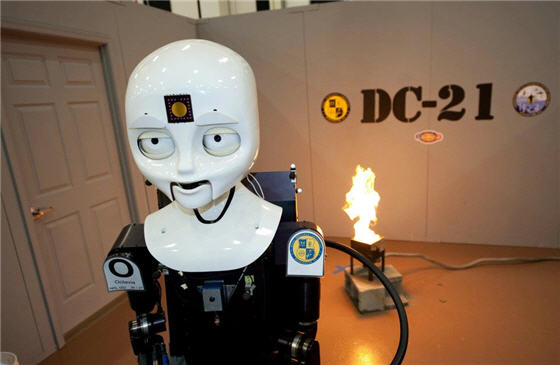The Ministry of Information Technology and Telecommunications (MoIT) said they are developing intelligent mobile robots (IMR) to deal with disasters, firefighting and emergency situations.
The mobile robots will be equipped with modern sensors and communication devices having AI and computational capabilities to mitigate disaster situations like terrorism, industrial fires, floods, and earthquakes.
The robots will exhibit features like detection, extinguishing the fire and other intelligent behaviors like object detection, finding a target and collision avoidance. Moreover, the robots will also have autonomous and manual control.
The robots due to their small size will be effective to extinguish fire in tricky areas where rescue operations can’t be easily conducted. During such hazardous conditions, IMR can perform critical operations and ultimately save lives.
Read Also: Pakistan’s IT export crossed $1 billion mark for the first time in history
The ministry is working on the project through the National ICT Research and Development Fund and Karachi Institute of Economics and Technology is working as a principal investigator organization. As per details, the cost of this on-going project is around Rs14.68 million. The IMRs will be built in-house and will also be available for local industries, hospitals, and offices where they will act as a workforce in the respective departments.
The industrial sector of Pakistan is huge having multiple industrial units ranging from cement manufacturing, dying units, steel, glass, paints and many others in which heavy machinery is utilized and in such cases accidents are frequent which sometimes take lives. In order to mitigate such unfortunate events, IMR’s will be helpful.
Furthermore, these robots can be effectively utilized in adverse circumstances as well as in harsh weathers for surveillance investigation, tracking, rescue operation and map generation. Currently, small-scale IMRs are available in market but all of them have manual control which is difficult to manage and even the experienced personnel cannot guarantee a successful mission.




 Saudi Prince becomes the biggest investor in SnapChat
Saudi Prince becomes the biggest investor in SnapChat